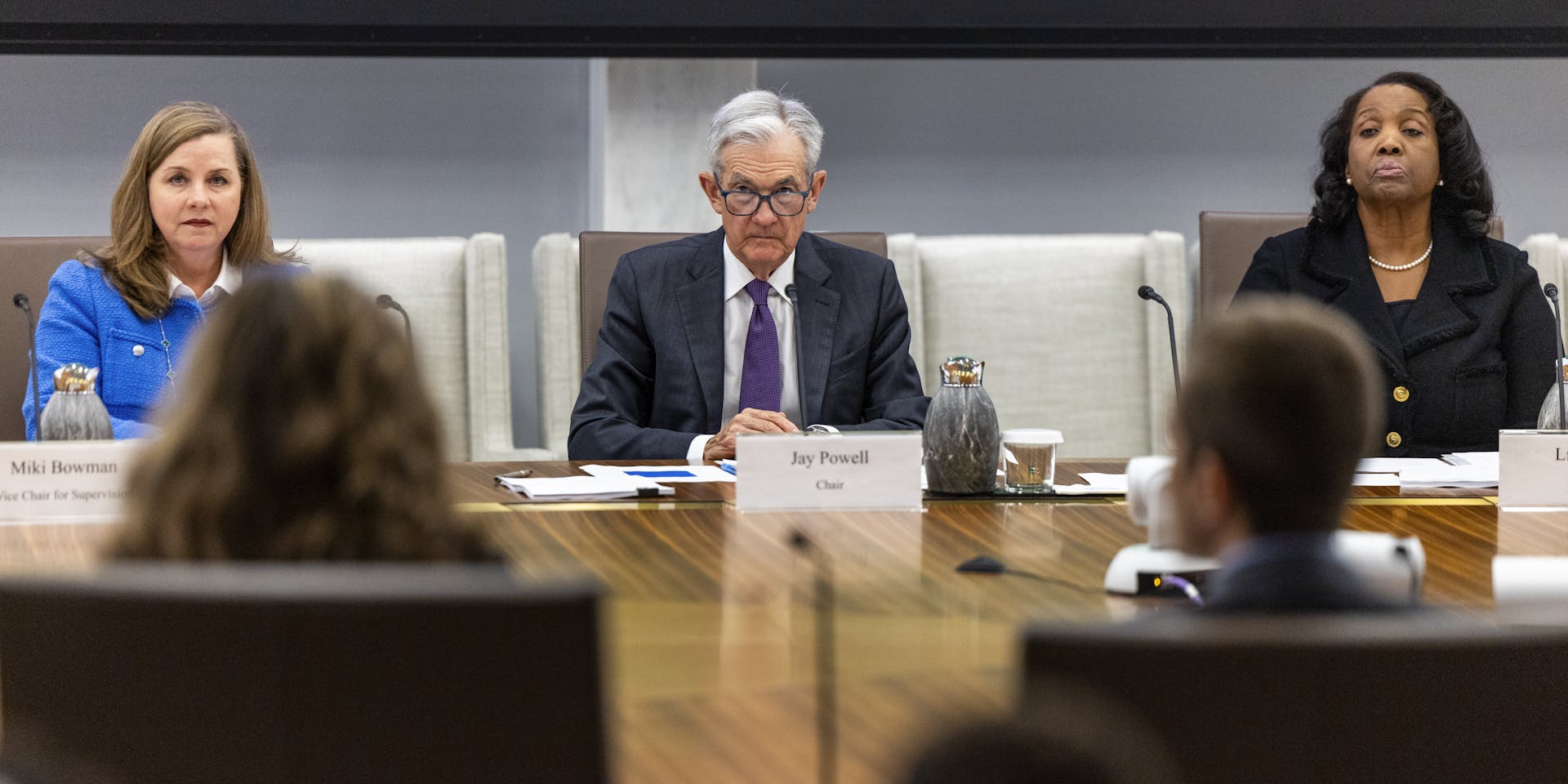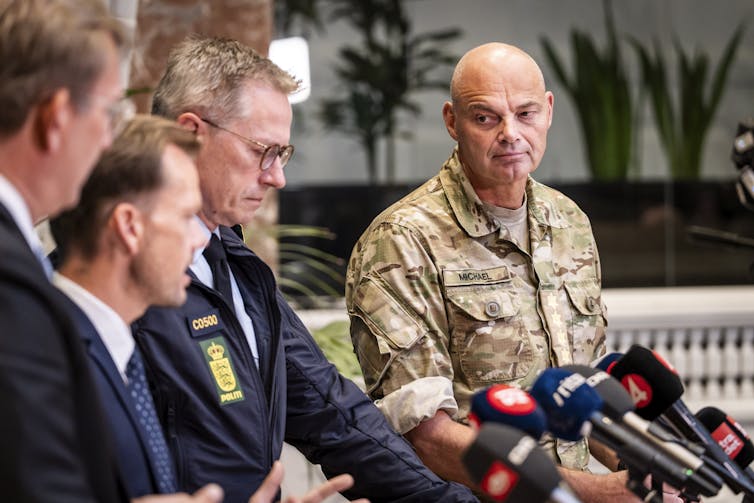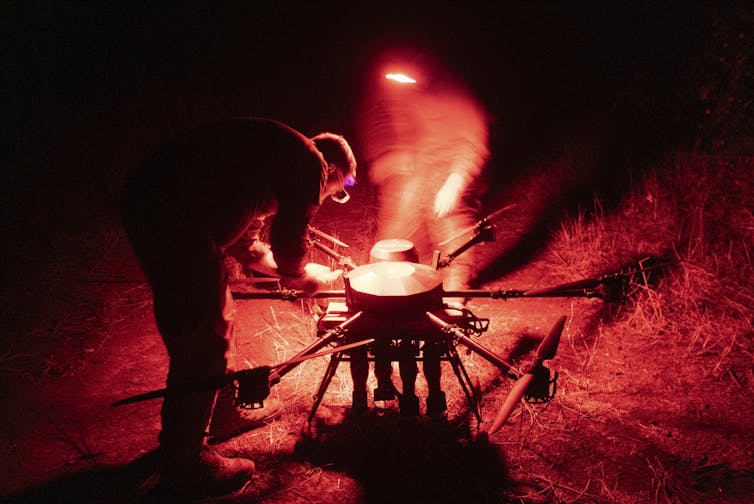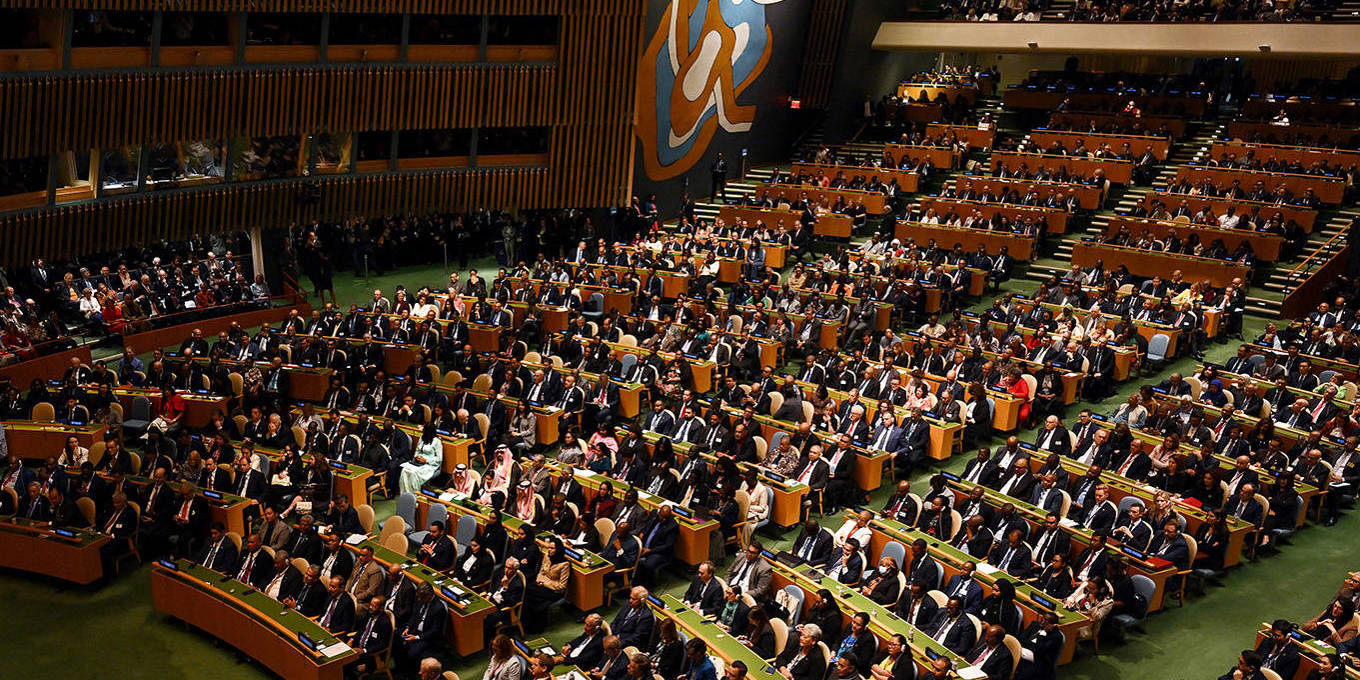Opinion
Letter: Frank Grimes obituary
Read more on post.

In 1977 Frank Grimes played Valentine in Anton Rodgers’s production of Shaw’s You Never Can Tell for the Oxford Playhouse Company. That season he went on to roles in plays by Ibsen and David Hare.
On the first night of You Never Can Tell, there being no way of getting from stage left to right behind the set at the Key Theatre, Peterborough, Frank hit his head on a concrete beam running below the stage to make an entrance.
After being out for 10 minutes, he recovered well enough to make his entrance stage right. His first line, “I’m sorry to have kept you all waiting”, brought the house down.
Valentine in the play is a first-day dentist – which made the delay almost appropriate.
Opinion
The 1970s inflation crisis shaped modern central bank independence. Now it’s under populist threat – podcast

Read more on post.

For months, Donald Trump has badgered the US Federal Reserve and its chair, Jerome Powell, to lower interest rates. When the governors of the Fed did so by 0.25 percentage points in mid-September to a target of between 4% and 4.25%, it wasn’t big or fast enough for Trump.
The next day, the president asked the US Supreme Court to rule on whether he could fire Lisa Cook, a Fed governor. A federal appeals court had blocked Trump from doing so after he accused her of mortgage fraud, which she denies.
This isn’t the first time a US president has put pressure on the Fed. In the early 1970s, Fed chair Arthur Burns came under sustained pressure from Richard Nixon to lower interest rates ahead of the 1972 presidential election. The Fed did lower rates and high inflation followed, fuelled by the headwinds of high global oil prices.
In this episode of The Conversation Weekly podcast, Cristina Bodea, professor of political science at Michigan State University, explains how the inflation spike of the 1970s cemented the case for protecting central banks from day-to-day politics. “There’s not a lot that becomes a global norm for good economic governance,” says Bodea, “but central bank independence became one.”
From the 1990s onwards, countries around the world began to pass laws protecting the independence of their central banks. Bodea’s research measures the independence of central banks by tracking these laws. Today, she says that independence is now under sustained pressure from a generation of populist leaders, which could threaten the credibility of central banks.
Listen to the conversation with Cristina Bodea on The Conversation Weekly podcast.
This episode of The Conversation Weekly was written and produced by Katie Flood, Mend Mariwany and Gemma Ware. Mixing and sound design by Michelle Macklem and theme music by Neeta Sarl.
Newsclips in this episode from WAVY TV 10, Reagan Library, euronews, msnbc, CBS News and NBC News.
Listen to The Conversation Weekly via any of the apps listed above, download it directly via our RSS feed or find out how else to listen here. A transcript of this episode is available on Apple Podcasts or Spotify.
Opinion
Zelensky says a destructive drone arms race looms – but dystopia isn’t inevitable
Read more on post.
In a speech at the UN headquarters in New York, where world leaders are currently gathered for the organisation’s 80th anniversary, Ukrainian president Volodymyr Zelensky warned: “We are now living through the most destructive arms race in human history.”
The proliferation of drone technology combined with the rapid development of AI, Zelensky remarked, could create “dead zones” in the near future. He defined these as areas “stretching for dozens of kilometres where nothing moves, no vehicles, no life. People used to imagine that [scenario] only after a nuclear strike – now it’s [a] drone reality.”
AI could soon enable “swarms” of drones that operate autonomously together in a coordinated manner. So far this has only been seen in sci-fi movies but we are now starting to see the beginnings of this technology in real life, including from the Ukrainian military.
For security scholars such as Audrey Kurth Cronin of Carnegie Mellon University in the US, we are now in a time of “open tech innovation”. This is a period where people – whether terrorists or criminal groups – do not need the expertise and resources of a state to be able to orchestrate nefarious acts of disruption and destruction.
Zelensky and Kurth Cronin believe this new age of military technology requires new rules and enhanced global collaboration if the worst-case scenarios are to be avoided. “We need to restore international cooperation – real, working cooperation – for peace and for security,” said Zelensky in his UN speech. “A few years from now might already be too late.”

Emil Helms / EPA
Days before these remarks, drone activity caused multiple airports in Denmark to close. The country’s defence minister, Troels Lund Poulsen, told a news conference that the “attack” was part of a “systematic operation”. Some reports have suggested that Russia may have been behind these acts.
One of the major concerns among security experts worldwide in recent years has been on acts of sabotage that play out below the threshold that can lead to open war. In what is known as “hybrid warfare”, states and criminal groups can orchestrate a variety of tactics to generate fear and cause disruption.
These acts may be intended for political ends – for instance, by creating discontent with political leaders. They may also be intended to test the systems of security that are important for defending against military action. The incursion of Russian drones into Polish airspace in early September, for example, generated serious debate about how Nato should respond.
These recent events may signal that the world is now in a new age of military-technological insecurity that, as Zelensky warned the UN, is only going to get worse in the years ahead.
Deterring futuristic war
Central to defence policy and strategic thinking is deterrence. Our world is built on strategies that are intended to deter countries or regimes from pursuing certain courses of action. The possession of nuclear weapons, for example, has prevented war between the world’s leading powers for decades.
Deterrence will continue to inform decisions and strategy, even as global events become increasingly chaotic. So much of the debate around what Nato countries should do about the war in Ukraine, for instance, has been informed by questions of deterrence and escalation. Ultimately, direct Nato action has been restricted by the fear that nuclear weapons could be used in a moment of strategic chaos.
Russian president Vladimir Putin has, in a similar way, been careful not to push above the threshold with actions that might lead to a direct confrontation with Nato. Acts that are hard to attribute – such as drone use over airports or cyber-espionage – are ideal for a regime that wants to create disruption but doesn’t want to escalate.
There are three elements that can be developed to prevent escalation and war. The first is deterrence by punishment. This is where an action will result in a response that will mean the risk outweighs the cost.
The second is deterrence by denial, when you make an action too difficult to orchestrate successfully and effectively. And third is deterrence by entanglement. This is when the interconnected nature of society means that an action may be counterproductive or even self-destructive.

Sergey Shestak / EPA
All of these elements of deterrence will probably come into play in this new age of drones and AI. There might be technical solutions that limit the extent to which AI-enabled drone swarms become a decisive weapon in future wars. For example, a group of drones was successfully knocked out by a new radio wave weapon in an April 2025 trial by the British Army.
There may also be limits on the exploration of the destructive possibilities of drone swarms due to the concern with keeping events below the threshold that would lead to war between global powers. While Putin may authorise the use of drones in Ukraine, he may be deterred from risking the use of swarms across London. This is due to the possibility of escalation and perhaps even the threat to Russian-owned property and citizens there.
So, as terrifying as the new age of drone swarms and AI may be, there are good reasons for thinking the dystopian possibilities of future war will be controlled and contained. We should probably expect that the world will be characterised by more frequent disruptive events in the years ahead. Yet, hopefully the disruption will be limited to the nuisance caused by delayed flights.
What is more concerning is the possibility of an accident occurring that tips disruption over the threshold into an open war. The history of war and international politics is rife with accidents and miscalculations. The question now is what accidents will be generated in this new age of AI and drone swarms.
Opinion
With America Out, the Rest of the West Must Rise

Read more on post.
KUALA LUMPUR – For decades after World War II, it was difficult to imagine the geopolitical West – and the rules-based international order more broadly – without the leadership of the United States. But since US President Donald Trump’s return to the White House, the survival of any semblance of US leadership now appears practically inconceivable – a shift that the ongoing session of the United Nations General Assembly will only reaffirm. America’s Western partners will need to adapt to the new reality by reducing their dependence on the US and improving coordination among themselves.
-
Culture2 days ago
Taylor Swift’s new cinema outing generates more than €12million in just 24 hours
-
Politics2 days ago
European Parliament snubs Orbán with vote to shield Italian MEP from Hungarian arrest
-
Culture2 weeks ago
Life, loss, fame & family – the IFI Documentary Festival in focus
-
Health3 days ago
EU renews support for WHO’s Universal Health Coverage Partnership
-
Culture2 months ago
Fatal, flashy and indecent – the movies of Adrian Lyne revisited
-
Culture2 days ago
Twilight at 20: the many afterlives of Stephenie Meyer’s vampires
-
Environment6 days ago
Key oceans treaty crosses threshold to come into force
-
Culture1 week ago
Farewell, Sundance – how Robert Redford changed cinema forever










































